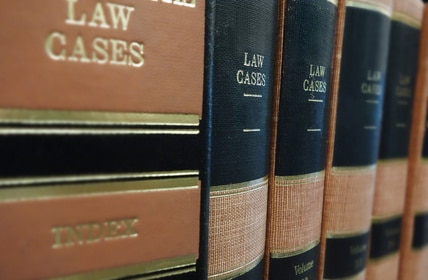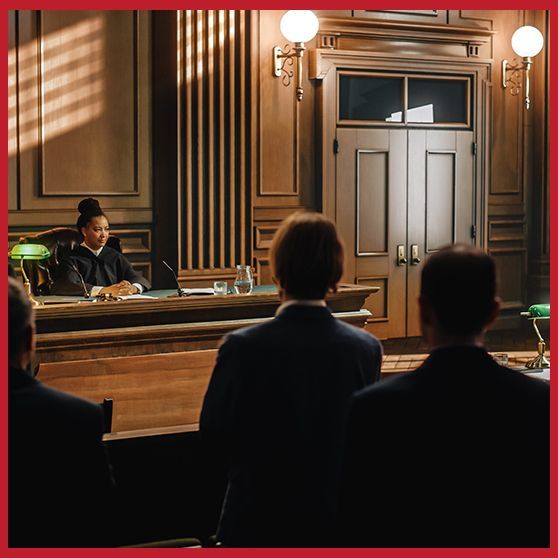Lawyer's Duty in Declaring a Habeas Corpus Application Explained
Comprehending the Role of a Post-Conviction Legal Representative in Looking For Justice After a Criminal Conviction
In the complex landscape of post-conviction legal process, the function of a post-conviction lawyer is pivotal in navigating the course to justice after a criminal conviction. Past the confines of a trial, these legal experts involve in a diverse method aimed at uncovering brand-new evidence, challenging legal errors, and promoting for their clients' legal rights. The intricacies of post-conviction work require a mix of lawful acumen, investigatory skills, and strategic believing to unravel the intricacies of a case and seek opportunities that might have been neglected or underexplored. As the search of justice prolongs past the confines of first proceedings, the duty of a post-conviction attorney emerges as a beacon of expect those looking for to remedy oppressions and reclaim their legal rights within the legal system.
Post-Conviction Lawyer's Investigative Job
Post-conviction lawyers participate in careful investigative work to uncover new proof, procedural mistakes, or misconduct that might potentially lead to overturning a conviction. This investigative phase is crucial in the post-conviction procedure as it aims to identify any type of overlooked information or legal errors that may have affected the end result of the initial trial. Post-conviction attorneys look into instance data, witness testimonies, and lawful documentation with a fine-tooth comb, looking for any discrepancies or abnormalities that could be grounds for appeal.
Through detailed examination, post-conviction lawyers intend to drop light on potential oppressions that may have occurred throughout the initial trial. They might perform meetings, seek advice from with experts, and evaluation forensic proof to develop a compelling instance for their clients. By scrutinizing every aspect of the legal procedures, post-conviction attorneys work tirelessly to uncover any type of elements that might have influenced the judgment. Ultimately, their investigatory job plays a crucial role in the quest of justice and the potential reversal of wrongful convictions.
Crafting Appeals and Petitions
In the quest of justice after a conviction, knowledgeable attorneys meticulously craft appeals and requests to existing compelling disagreements for the reconsideration of lawful decisions. Crafting charms and applications requires a deep understanding of the lawful system, focus to detail, and calculated thinking. Post-conviction attorneys evaluate trial records, identify prospective errors or infractions of civil liberties, and create lawful debates to challenge the sentence or sentence.
When crafting an allure, legal representatives focus on highlighting lawful errors that may have influenced the outcome of the situation. They look into situation regulation, statutes, and lawful criteria to support their debates. Requests, on the various other hand, might entail presenting brand-new proof that was not readily available throughout the test or showing adjustments in the legislation that require a testimonial of the conviction.
Additionally, post-conviction attorneys need to stick to strict step-by-step rules and due dates when filing charms and applications. website link They should offer their debates clearly and persuasively to convince the court to give alleviation to their clients. Through careful crafting of charms and applications, post-conviction attorneys make every effort to secure justice for people who have actually been wrongfully convicted or unfairly punished.

Pursuing Post-Conviction Alleviation
Looking for alleviation after a conviction needs a critical and persistent approach by experienced attorneys. Post-conviction alleviation incorporates a variety of legal mechanisms created to test the validity of a sentence or sentence (west virginia federal habeas corpus attorneys). These methods include filing motions for a brand-new test, pursuing allures, seeking writs of habeas corpus, and presenting recently discovered proof. Post-conviction legal representatives play an important duty in navigating these complicated procedures, making certain that all lawful options are discovered to correct oppressions that might have occurred during the test or sentencing phase.
One common type of post-conviction relief is filing a request for post-conviction alleviation, normally based upon cases of inefficient support of advise, prosecutorial misconduct, recently uncovered proof, or constitutional infractions. These petitions need an extensive evaluation of the test record, lawful study, and persuasive advocacy to encourage the court to approve relief. Experienced post-conviction attorneys have the abilities and expertise required to determine practical legal claims, perform examinations, and existing engaging debates to safeguard alleviation for their clients. By diligently going after post-conviction alleviation, these lawyers strive to correct miscarriages of justice and promote the concepts of justness and due process in the criminal justice system (Lawyer).
Using Forensic Proof
When testing a sentence or sentence, the critical utilization of forensic proof can be an effective device in post-conviction legal proceedings. Forensic proof encompasses a large range of clinical methods made use of to explore criminal activities and establish truths in court. Post-conviction attorneys can utilize forensic evidence to test the legitimacy of sentences by presenting brand-new scientific findings that were not offered during the initial trial.

Taking Part In Sentence Adjustments
Post-conviction legal representatives may discover the possibility of sentence adjustments as a legal avenue to attend to disproportionate or unfair sentences bied far in criminal instances. Sentence adjustments entail seeking changes to the terms of an accused's sentence after a conviction has actually occurred. These alterations can consist of lowering the length of a sentence, modifying the sort of punishment imposed, or checking out alternative sentencing alternatives.
Post-conviction legal representatives can go after sentence modifications with different legal mechanisms, such as filing motions for sentence decrease, appealing for compassionate launch, or negotiating appeal deals for reduced sentences. They must meticulously assess the circumstances of the situation, assess the lawful grounds for seeking a modification, and present engaging disagreements to the court supporting the requirement for a revised sentence.
Participating in sentence modifications requires a detailed understanding of criminal legislation, sentencing guidelines, and the specific procedures associated with seeking post-conviction alleviation. Post-conviction lawyers play a crucial role in promoting for fair and just results by difficult sentences that are unduly extreme or do not straighten with the concepts of justice.
Final Thought
In conclusion, the role of a post-conviction lawyer is critical in seeking justice after a criminal sentence. With investigatory job, crafting charms and petitions, seeking post-conviction alleviation, using forensic evidence, and taking part in sentence alterations, these lawful experts play a vital duty in advocating for their customers and ensuring that their civil liberties are supported within the criminal justice system. Their devotion and know-how are crucial in navigating the complexities of post-conviction proceedings and accomplishing a fair result for people encountering criminal sentences.